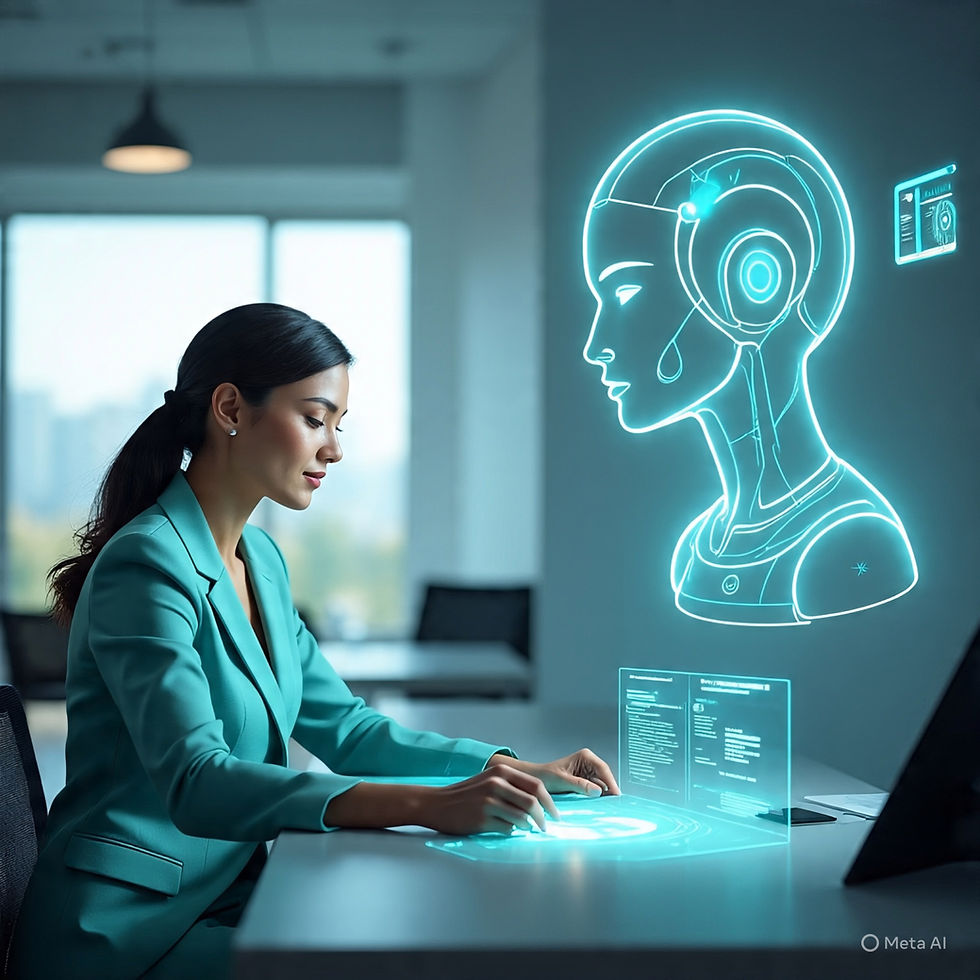Is AI Coming For Your Job? - Panel Discussion Recap
- Jenny Kay Pollock
- Jul 24, 2025
- 3 min read

The conversation around artificial intelligence has shifted from whether it will impact our careers to how it already has. In a recent panel discussion Claire Wasserman Founder of Ladies Get Paid facilitated a conversation with Jenny Kay Pollock, WOMEN x AI Co-founder and Lori Adams Brown, global talent development director and host of A World of Difference. We explored the rapidly evolving landscape of work in the age of AI.
While concerns about job displacement are valid, the discussion revealed a more nuanced reality where adaptation, upskilling, and leveraging uniquely human capabilities may position us to thrive alongside AI rather than be replaced by it.
Check out our 10 key takeaways from this conversation:
1. AI is transforming work, not just eliminating it

While some jobs are being displaced, the World Economic Forum predicts a net positive of 12 million new jobs by 2025, with 97 million new roles created despite 85 million being displaced.
2. Human-centered skills are becoming more valuable
Communication, emotional intelligence, cultural intelligence, and complex problem solving are increasingly critical as AI handles technical tasks. These "soft skills" are now business imperatives.
3. Learn AI in community
Join communities like WOMEN x AI to learn collaboratively and share experiences. Our WxAI membership is free so sign up today.
4. Be a "learn-it-all," not a "know-it-all"
The technology is evolving so rapidly that humility and curiosity are more valuable than claiming expertise. Even Silicon Valley "AI experts" are still learning. Schedule 20 minutes weekly to explore new AI tools, but don't try to master everything at once. Put it in your calendar as a recurring event right now, you'll thank us later.
5. Upskill proactively
Whether through free resources (YouTube, free Google courses) or paid options (Stanford HAI, MIT Sloan, Coursera), continuous learning signals adaptability to employers and clients.
Join us for #WxAISocialSaturday each weekend on LinkedIn we gather in the comments section of a post from our WOMEN x AI corporate page and have a conversation about AI hosted by one of our community members. Best part no video calls it's all async text!
6. Prompt engineering matters
The quality of your AI outputs depends on your inputs. Provide context, be specific about your role, and include details about how you prefer to receive information.
7. AI adoption requires human oversight
Early corporate adopters who eliminated human roles (like Duolingo and Klarna) often reversed course after discovering AI couldn't fully replace human judgment and nuance.
8. Leadership will look different
Future managers may lead teams consisting of both humans and AI agents, requiring new communication and delegation skills.
9. New roles are emerging
AI ethicists, human-in-the-loop designers, prompt engineers, and "culture translators" for AI adoption are among the emerging careers created by AI integration.
10. Embrace the "Soft Skills" or rather Power Skills
The historically undervalued "soft skills" often associated with women—empathy, relationship-building, communication—are becoming increasingly valued as AI handles more technical tasks. We really also like the reframe of calling "soft skills" power skills. 📖 Want to learn more? Check out, AI Isn’t Just for Coders — And Other Myths We’re Busting Together
As we navigate this technological revolution, the most successful approach appears to be neither blind resistance nor uncritical embrace of AI, but rather thoughtful integration. By dedicating time to understand these tools, collaborating with others on the same journey, and focusing on developing our uniquely human capabilities, we can position ourselves to work alongside AI rather than be replaced by it. The future belongs not to those who fear change, but to those who approach it with curiosity, adaptability, and a commitment to continuous learning—qualities that no AI can replicate.




Comments